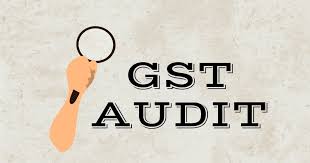
GST Audit
GST Audit means examination of records, returns and other documents of the registered person in order to verify the correctness of turnover declared, taxes paid, refund claimed and input tax credit availed and to assess the compliance with the provisions of the GST Act or rules made thereunder.
Types of GST Audit
- Audit by taxable person if its aggregate turnover exceeds Rs.2 crores during a financial year.
- Audit by GST tax authorities either the audit may be conducted by the commissioner (General audit) or at his orders by any CA nominated by him (Special audit).
Where audit shall be conducted?
The audit shall be conducted at any of the place of business of the registered person or in their office for a financial year or multiples thereof.
1.Audit by the Taxable Person
Every taxable person whose aggregate turnover exceeds Rs.2 crores during the financial year shall get his accounts audited by a Chartered Accountant or a Cost Accountant and shall electronically file:
– an annual return (Form GSTR-9)
– the audited copy of the annual accounts
– a certified reconciliation statement in the Form GSTR-9C, reconciling the value of supplies declared in the return with the audited annual financial statement.
2.Audit by Tax Authorities
Who may conduct the audit?
The audit may be conducted either by the commissioner (General audit) or at his orders by any CA nominated by him (Special audit).
General Audit
The proper officer authorised to conduct audit of records and books of accounts of the registered person shall verify the correctness of the turnover, exemptions and deductions claimed, rate of tax applied, input tax credit availed and utilised, refund claimed and other relevant issues as may be prescribed. During the audit, the registered person shall provide necessary facility to verify the books of account and other documents. Also, to provide required information and assistance for timely and efficient completion of audit. The proper officer may inform the discrepancies and observations of the audit to the registered person who in turn shall file a reply. The proper officer shall finalise the findings of the audit after due consideration of the reply furnished.
Time limit for completion of audit
The audit is required to be completed within 3 months from the date of commencement of audit. However, the period may be extended by the commissioner upto 6 months.
Special Audit
When and by whom Special audit can be initiated?
The Assistant Commissioner with the prior approval of the Commissioner can order special audit in writing if he is of the opinion during any stage of scrutiny/ inquiry/investigation that the value has not been correctly declared or the wrong credit has been availed.
Who will conduct special audit?
Special Audit shall be conducted by a Chartered Accountant or Cost Accountant nominated by the Commissioner.
Time Limit for completion of audit
The auditor will have to submit the report within 90 days. On an application made by the taxable person or the auditor the period may be further extended by the tax officer for 90 days.
Who will bear the expenses?
The expenses of conducting the audit including the remuneration of Chartered Accountant or Cost Accountant shall be determined and paid by the commissioner and such determination shall be final.
Special Audit Report
The registered person will be given an opportunity of being heard in respect of findings of special audit. If audit results in detection of tax not paid or short paid or erroneously refunded or input tax credit wrongly availed or utilised, then demand and recovery actions will be initiated.
